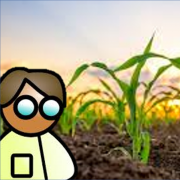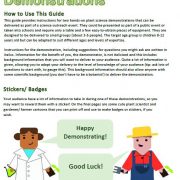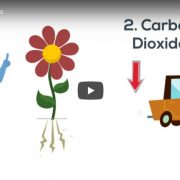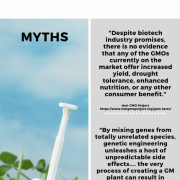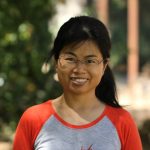Informational Interview with Dr. Mary Williams, Features Editor, The Plant Cell
By Catherine Freed, Conviron Scholar
Hello everyone! I had the opportunity to interview Dr. Mary Williams. Mary is a features editor of Teaching Tools in Plant Biology for Plant Cell as well as a Plantae community manager. She got her PhD in Plant Molecular Biology from Rockfeller University and did a Postdoc at the University of California-Berkeley. She switched her focus from research to teaching when she accepted a teaching position at Harvey Mudd College, a primarily undergraduate institution (PUI). She now lives in western Scotland with her family and dog, editing papers and teaching tools for plant scientists all around the globe.
For those who are interested in becoming editors, a PI at a PUI or just need some tips to improve their writing, this interview is especially insightful!!
You mentioned you worked on phosphoinositide signaling during your post doc at Berkley (on a previous thread for Conviron scholars) but then switched from traditional research to work as an editor. What caused you to switch from traditional research to teaching/developing research tools?
Mary had attended a Lipid Signaling Conference and was presented with the opportunity to do a Postdoc in Scotland. During her Postdoc, she had got married and wanted to stay in Scotland however was having difficulty finding a job. As she had volunteered ASPB education committee chair for a number of years, she was offered a position to develop teaching tools for plant biologists. This job was perfect because it would allow her to do work she was passionate about all the while working from her home in Scotland. “It’s definitely worth doing [volunteering] whenever you can. It can pay off quite literally!”
How did you prepare for this job? Where you originally prepared to switch from research to teaching?
“I had no idea what I was getting into!” She gave an introduction to plant development during an interview for a teaching position at Harvey Mudd. Originally, the interviewers had been slightly cautious due to her lack of teaching experience however between her amazing explanation and her pedigree, she was given the job and later hired full professor. The most appealing aspect about working at Harvey Mudd as opposed to other universities was the fact that the professors had talked about students as individuals; not randoms. This intensity and care for students really appealed to her as she too wanted to know them as individuals.
When it comes to getting grants while working at a PUI, is this something that is hard to do especially since there is less time spent researching? What about the pressure to publish?
“At a PUI, you don’t get much research done but there is still a push to get published.” Her advice for this was to choose easier experiments for undergraduates. “People who do fieldwork always get published regardless; that’s the nature of their work. Molecular work is harder and more expensive for undergrads so it’s better to choose easier things.” Diversity of little projects that all fit together is key for research at a PUI institution. She also advised for anyone pursuing a position at a PUI, it’s good to partner up with people at other universities. There’s a lot that can be gained through collaborating. She also mentioned the fact that NSF has grants for PUIs. “They [NSF] understand the value of giving research experiences to undergraduates. They evaluate the grants [both PUI and nonPUI] together but then evaluate the PUI grants with other money sources.”
What is it like to develop teaching tools for plant biology (ASPB)?
She had originally developed teaching tools for ASPB but now she mainly edits and aids in the development of ASPB teaching tools, covering a variety of topics (photosynthesis, transport, hormones, etc) http://www.plantcell.org/content/teaching-tools-plant-biology
I’m very interested in outreach and scientific communication. How do you select your target audience?
“My target audience has always been undergrads and early grads because of my position at Harvey Mudd; I was always involved with teaching undergrads.” She has trouble reaching nonscientific audiences; especially those who have strong voices/opinions without giving any thought to the scientific logistics. “If you don’t know what chemicals are and have strong negative opinions about GMOs, I’m going to have trouble. If you know what transposons are or have basic scientific knowledge, we’ll get along just fine!”
What do you specifically like about being a features editor?
“Working for a top research journal is exciting!” The publishing process is constantly changing; the online platforms are always being improved upon. Always given the opportunity to review cutting edge research; “being at the forefront of plant biology!”
“There’s a lot of money to made in academic publishing.” Especially when it comes to formatting and website changes. Constantly adapting to the newest technology to keep authors and readers happy all the while keeping prices down to keep Plant Cell affordable.
What are the biggest challenges of this job?
Time management! It is hard to juggle your time appropriately when working at home; especially when family comes to visit. “When working from home, time management is key! One of the most important skills to have with this type of work.”
The biggest challenge for her though, is rejecting people. “It’s hard to decline someone’s paper but it’s a fact of life. Plant Cell is a highly selective journal; accepting about 15 papers per issue. Plant physiology publishes more; around 30 papers per issue. The fact is most papers don’t get selected.” Since writing is very personal, she doesn’t like the rejection process.
“Most writers don’t get good training.” Not to mention, there is no clear consensus when it comes to reviewer preference/stylistic taste.
How can one get good training for writing?
“The more people give you feedback, the better you become. Your PI and lab group have a huge influence on you.” For Mary, her biggest influence was her Post Doc advisor. When she first gave him her manuscript, he read the first sentence out loud. “Does this say what you want it to say?,” he inquired. Needless to say, Mary was shocked but had learned so much as they went through her papers line by line. It made her think more about what she wanted to sat as well as how to say it in the best way possible.
I found this advice to be extremely helpful! She also advised that the ultimate goal when it comes to writing is to get all the content into the first draft and highly improve it with the second draft. When scrutinizing your drafts, think about the flow of the paper. Take steps back from your writing (literally! She likes to take her dog for walks to just think about what she’s going to write about/internalize information before going back to her computer)
Another exercise that has helped her improve writing is by taking a not-so well written paragraph and rewriting it in her own style. (This is something that us ASPB Conviorn scholars will be tasked with soon and I’m really looking forward to it!)
Thank you so much Mary for allowing me to interview you! I really enjoyed our talk and have new ideas about writing and career paths. I had never really considered PUI as a career option before but after talking with you about it, it seems like a super exciting career path.



